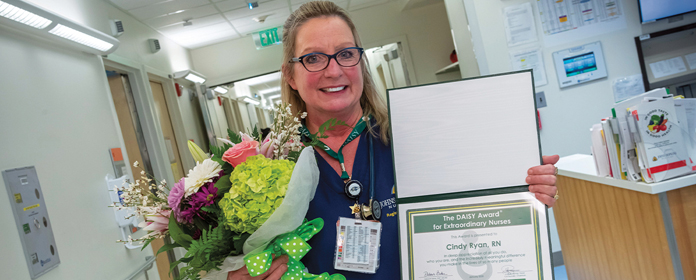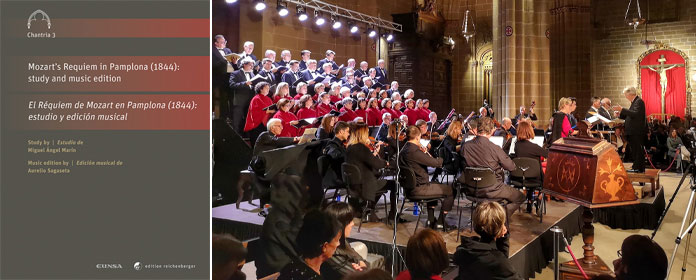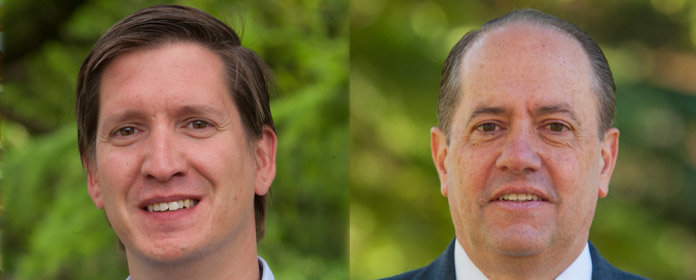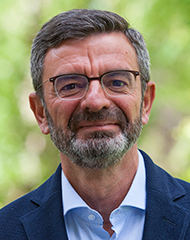"When you feel satisfaction for the work done and you can count on a person ready to lead the future, the idea of change comes calmly and naturally".
After a decade leading the project 'Education of affectivity and human sexuality' of Institute for Culture and Society, Jokin de Irala passes the baton to Alfonso Osorio.
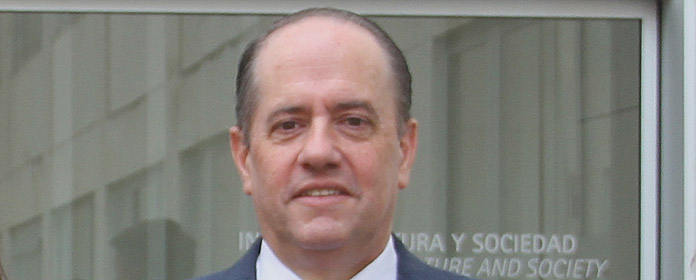
PHOTO: Manuel Castells
In April 2009, the University of Navarra announced the selected projects in the framework of the creation of the new research center in Humanities and social sciences, which in 2010 was constituted as the Institute for Culture and Society (ICS). One of them was 'Education of affectivity and human sexuality' (EASH), which has been led since its inception by the Full Professor of Preventive Medicine and Public Health Jokin de Irala.
graduate in Medicine and Surgery from the University of Navarra, did a Master's Degree in Public Health in Scotland (1987), obtained the Degree of Doctor of Medicine (1990) and, in 2000, did a second doctorate in Public Health in the USA. He has been Associate Dean of the School of Medicine of the University of Navarra. In addition to being a professor at the University of Navarra, he teaches at Master's Degree in Marriage and Family and has given numerous conferences in different countries. He is also a member of the Pontifical Academy for Life.
After a decade at the helm of EASH, Jokin de Irala has passed the baton of the management of project to Alfonso Osorio. Alfonso Osoriowho will share dedication with the teaching in the School of Education and Psychology.
-What are the reasons for the change?
Behind this decision there is... 10 years of work! They have been very interesting years. With the illusion of being part of the beginning of an important initiative such as the ICS, with the challenges and difficulties of projects that still had not yet traced the paths to follow. Many people have had to get used to work together, coming from different disciplines both within the project EASH and within the ICS. Our challenge was not only to implement the projects approved at the beginning, but also to consolidate them so that the groups would have continuity.
Once achieved the consolidation of those, constituted a group of research and designed the growth plans for the future, we also followed the recommendation of our board to think about relays. In the case of EASH we have worked together for some time the principal researcher (PI) and the co-PI Alfonso Osorio, and little by little the idea that the change was good and possible has come. When you feel satisfaction for the work done and you can count on a person perfectly prepared to relieve you and lead the future, the idea of change comes calmly and naturally.
What are the steps to properly manage the transition within a project of research?
I am not the one to give lessons to anyone about this. I can only give my personal impressions. Some time ago I was amused to find a text on Google about "bronchemia". It was a sort of caricature of the university professor, extensible to researcher. I invite readers to enter it in this search engine. I certainly did not want to be affected by this "disease". I believe that for the projects, ideas and styles of university work to have good continuity, as well as a healthy renewal, it is important, firstly, to delegate to prepare young people and, secondly, to take the step of handing over to them the leadership of the different university responsibilities. An ill-prepared handover can destroy all the achievements made so far. The university's challenge is to advance by consolidating positions. And this is only possible by first preparing young people to trust them as relays, while they still have the energy required for leadership.

Jokin de Irala and Alfonso Osorio during one of the meetings of work of the project EASH of the ICS.
Photo: Natalia Rouzaut.
-What will be your role in ICS from now on?
I will continue to be part of group EASH as researcher senior. I will be available so that what I can contribute from experience is not lost, but respecting the new PI so that he can lead in his own style. At the beginning, I will not participate in the group meetings to facilitate work, but I will be fully integrated in the work as required by the different projects. I am looking forward to being able to dedicate myself more calmly to studying and publishing, as well as to spending more time with students in that task that is so characteristic of our university: advising staff. Moving away from management will allow me to dedicate more time to these fields.
What do you highlight from your experience as EASH's main researcher ?
First I want to highlight some negative aspects, which there are also some. As PI you can feel many moments of loneliness and misunderstanding. To the university professor and researcher, the management is not necessarily what makes you "vibrate" the most. It is easy to get the feeling that the effort you are making with this service is not valued. Another aspect that can be perplexing is that sometimes your work as researcher is unknown or misunderstood.
But fortunately the positives are much greater. Regarding this, what I would highlight most about my experience as PI these years is the team of people who have worked alongside me. Not only within the project EASH -I have had exceptional people- but also among the managers who help us and among the researchers of the other groups. We are all very different, I want to emphasize, very different, but it is amazing to see how well we have been able to work together these ten years because we were driven by the same university illusions. I feel especially proud to have participated in this project, with these people, and to have been able to consolidate a project that can now continue to advance.
-What have been the milestones of EASH during this decade?
I would highlight three groups. At the level of researcher we have published 31 articles in scientific journals of impact, 15 books, 9 technical reports and 3 quick responses to current issues in scientific journals. We have received public funding in several subprojects.
In terms of social transfer, we have produced manuals for school students and parents on character Education and affective-sexual Education , which have reached some 50,000 young people. The profile of Facebook profile of our project "Soy Amante" has 700,000 followers, the "Jóvenes Hoy" website with questions and answers on sexuality has received 1,600,000 visits. And the videos we have made every year to strengthen the "sexual assertiveness" of young people have gone viral: they have been seen by some 140 million people.
Finally, in the area of future projection, I would like to highlight that we have started a clinical essay on emotion-focused marriage therapy, and a researcher from our group will do a postdoc at Harvard next year on a project on "Human Flourishing" which will open up new opportunities for work.
-What are your objectives for this new stage?
I could describe this new stage as being just as exciting as it was ten years ago. Firstly, because we are starting from a consolidated project despite the fact that we are only eight people, and secondly because we have new objectives to develop in the coming years. And if you ask me if I would embark on this again, I would answer that, without a doubt, yes. Moreover, with the advantage of being able to learn from the mistakes I have made.

